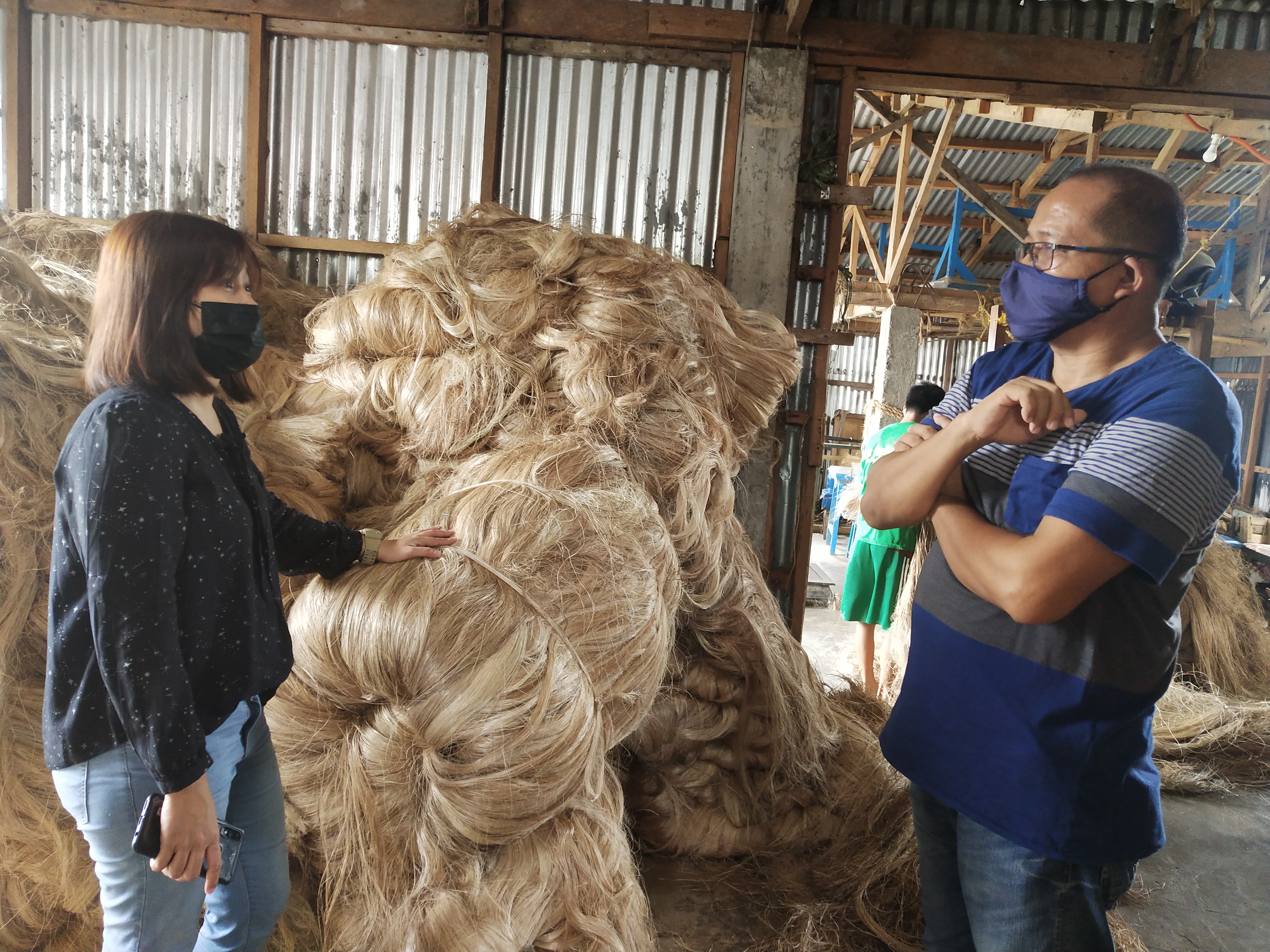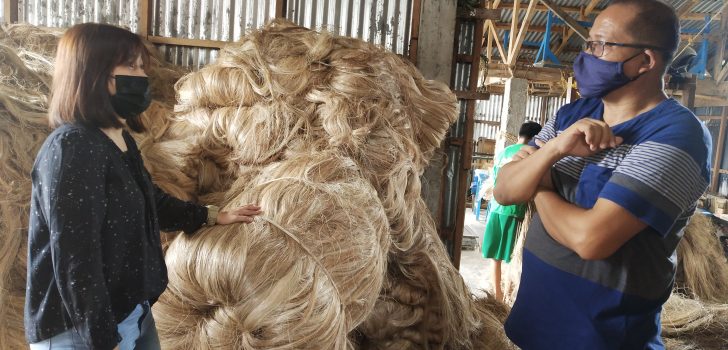 Abaca Local Trader in Albay, Edwardo Bonaobra explains the different kinds of abaca and their uses. (Photo by: Michelle Angela G. Alfigura, DA-PRDP RPCO V InfoACE Unit
Abaca Local Trader in Albay, Edwardo Bonaobra explains the different kinds of abaca and their uses. (Photo by: Michelle Angela G. Alfigura, DA-PRDP RPCO V InfoACE Unit
PSO-RPCO evaluates Abaca VCA in Albay and Sorsogon
The Philippines is known as the largest producer of Abaca fiber supplying about 87% of the world’s requirement to produce cordage, specialty papers (for currency note, stencil paper, teabag, coffee filter/cup, capacitor, and insulation paper, etc.), textiles, furniture and fixtures, handicrafts, novelty items, meat casing, cosmetics and skin care products, grocery bags, composites for automotive and construction and other industrial applications.
According to the Philippine Fiber Industry Development Authority (PhilFIDA)- Bicol, abaca is the second permanent crop in the Bicol Region. In terms of production, Bicol is the number one supplier of abaca fiber in the Philippines. In fact, for the period 2015 to 2019 Bicol has a captive supply of about 37% of the total National Production.
Abaca is one of the commodities that the Philippine Rural Development Project (PRDP) assesses to draft a plan that fits the needs of its stakeholders. To provide more knowledge and support to the farmers and fisherfolks, the PRDP strengthened its assistance to the local government units (LGUs) and the proponent groups (PGs) through the Value Chain Analysis (VCA) and the preparation of the Provincial Commodity Investment Plan (PCIP) to validate the basis of intervention and to promote collaboration with the government and non-government agencies and draft a strategic plan to rationalize the interventions within the various segments of the value chain.
With the formation of the VCA and PCIP for Abaca, the Investments in Rural Enterprises and Agriculture and Fisheries Productivity (I-REAP) component of the PRDP has developed subprojects that can help improve the lives of the abaca stakeholders. The said subprojects are the Abaca Trading and Processing Enterprise in Catanduanes, Malilipot Abaca Twine Processing and Marketing Enterprise in Albay and the Sorsogon Abaca Fiber and Processing (Almacen) Enterprise in Sorsogon.
Recently, the Project Support Office (PSO) South Luzon and Regional Project Coordination Office (RPCO) – Bicol conducted an Abaca Value Chain Assessment to the Abaca Farmers, Enablers, Processors and Traders as respondents to the Abaca VCA Assessment in the province of Albay and Sorsogon, to evaluate and provide evidence that the desired outcomes in the commodity value chain were attained using the VCA tool.
The respondents shared their experiences in the abaca industry including the assistance they received, the cost and the production output, marketing strategies, opportunities, challenges and constraints and their perceptions as well as the things they needed to improve their production, productivity, and the quality of life.
Initial results of the VCA assessment, show that the demand for abaca in Albay and Sorsogon is still good. Although there were series of typhoons, the farmers were not affected because they were able to harvest early and store their abaca.
On the other hand, Exporters and traders have increased their income even during the pandemic, because more people tend to use things that are made with natural and organic materials.
Moreover, the LGUs continue to support proponent groups to further improve and develop the abaca industry.
The team will continue to conduct the Abaca VCA Assessment in the Province of Catanduanes. The PLGUs have already identified and arranged the schedule of Key Informant Interviews and Focus Group Discussions to strictly follow the rules set by the Inter-Agency Task Force.
The Philippine Rural Development Project (PRDP) conducts the Value Chain Assessment in some areas where investments are pursued in support to various priority commodities that have been spearheaded by the process of the project in laying a science-based approach of making agricultural growth broader, sustainable, and inclusive to enable more communities and expand opportunities to the farmers and fisherfolks. (Michelle Angela G. Alfigura, DA-PRDP RPCO V InfoACE Unit)
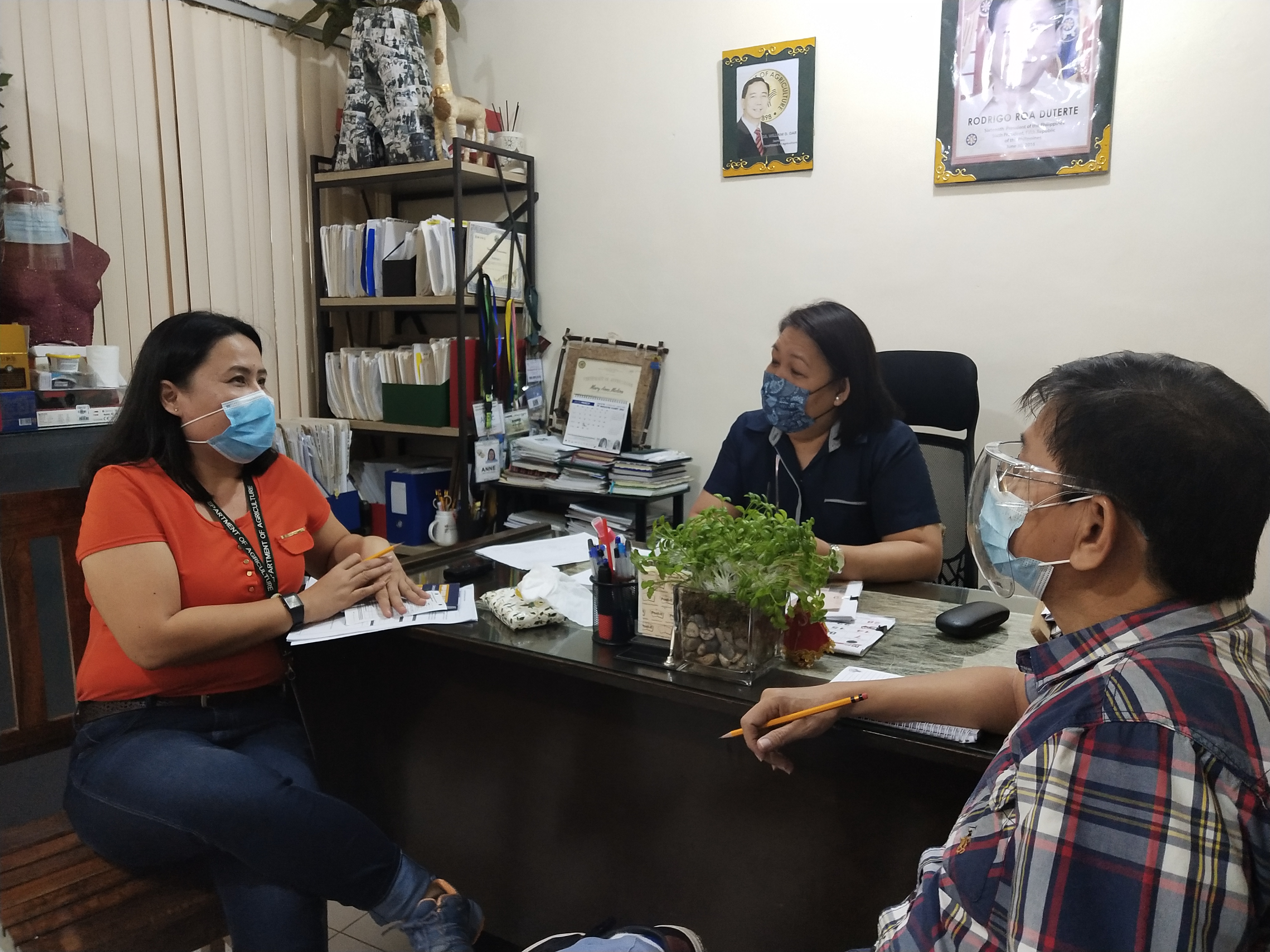
Philippine Fiber Industry Development Authority (PhilFIDA)- Bicol, OIC-Director Mary Anne Molina shares the status of the Abaca Industry in the Bicol Region to the Project Support Office (PSO) South Luzon and Regional Project Coordination Office (RPCO) during the Key Informant Interview. (Photo by: Michelle Angela G. Alfigura, DA-PRDP RPCO V InfoACE Unit
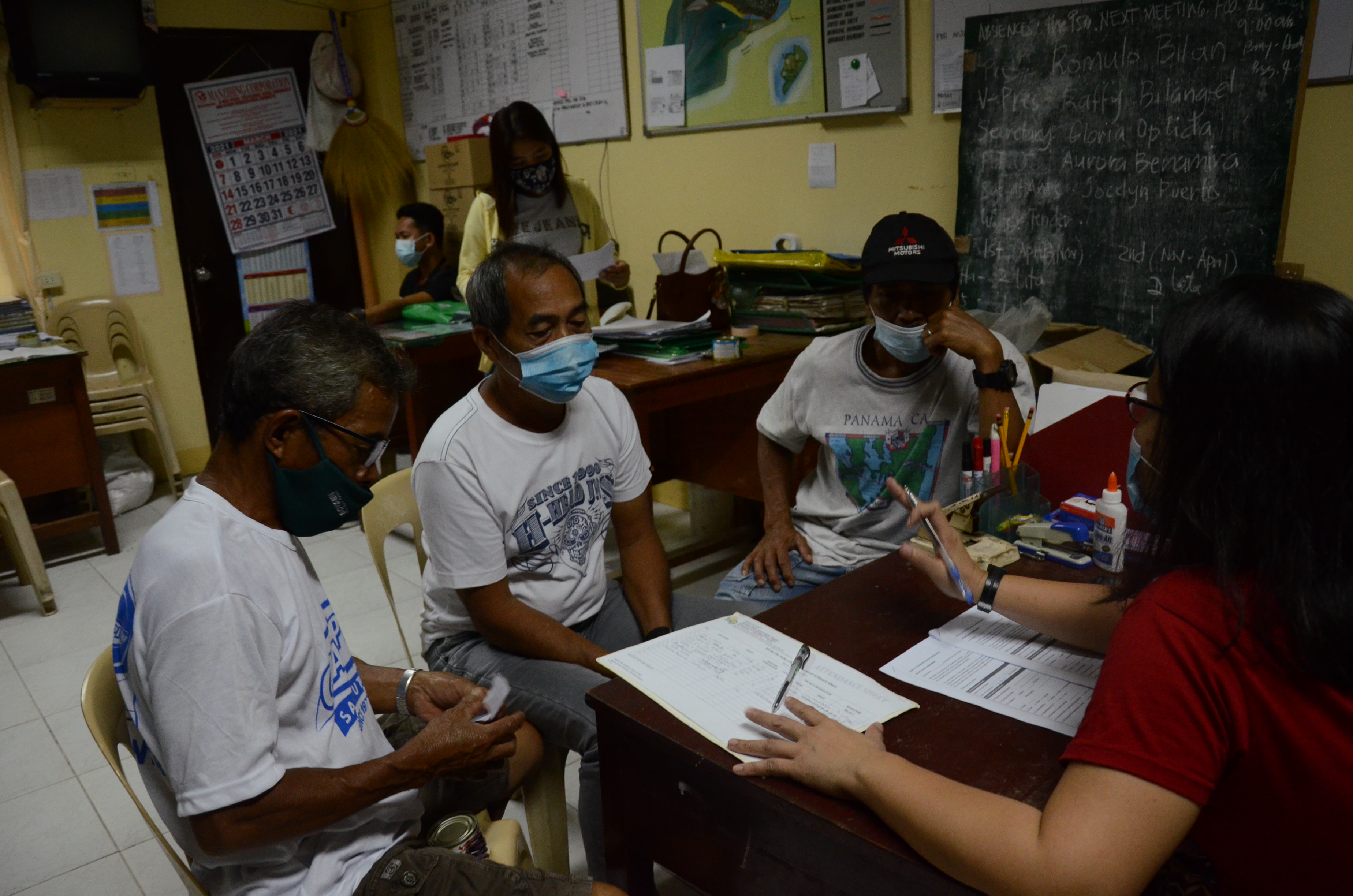
Abaca Farmers in Malilipot Albay, shared their perception and the support they needed to increase their production. (Photo by: Michelle Angela G. Alfigura, DA-PRDP RPCO V InfoACE Unit
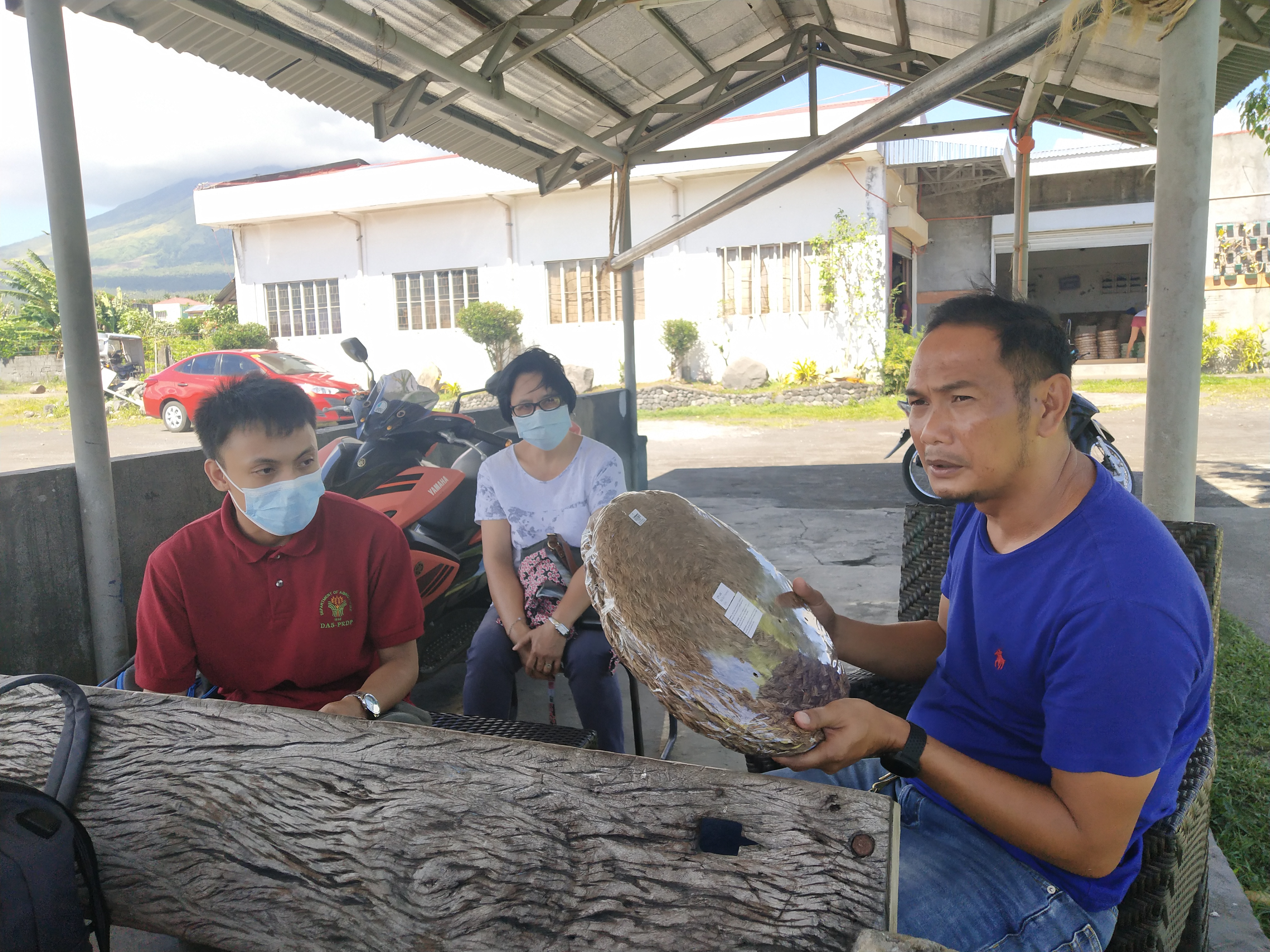
Felipe Noe Napa, owner/manager of the Natural Carpet Industries shows some of his abaca products that he exports to the US and other Asian countries. (Photo by: Michelle Angela G. Alfigura, DA-PRDP RPCO V InfoACE Unit
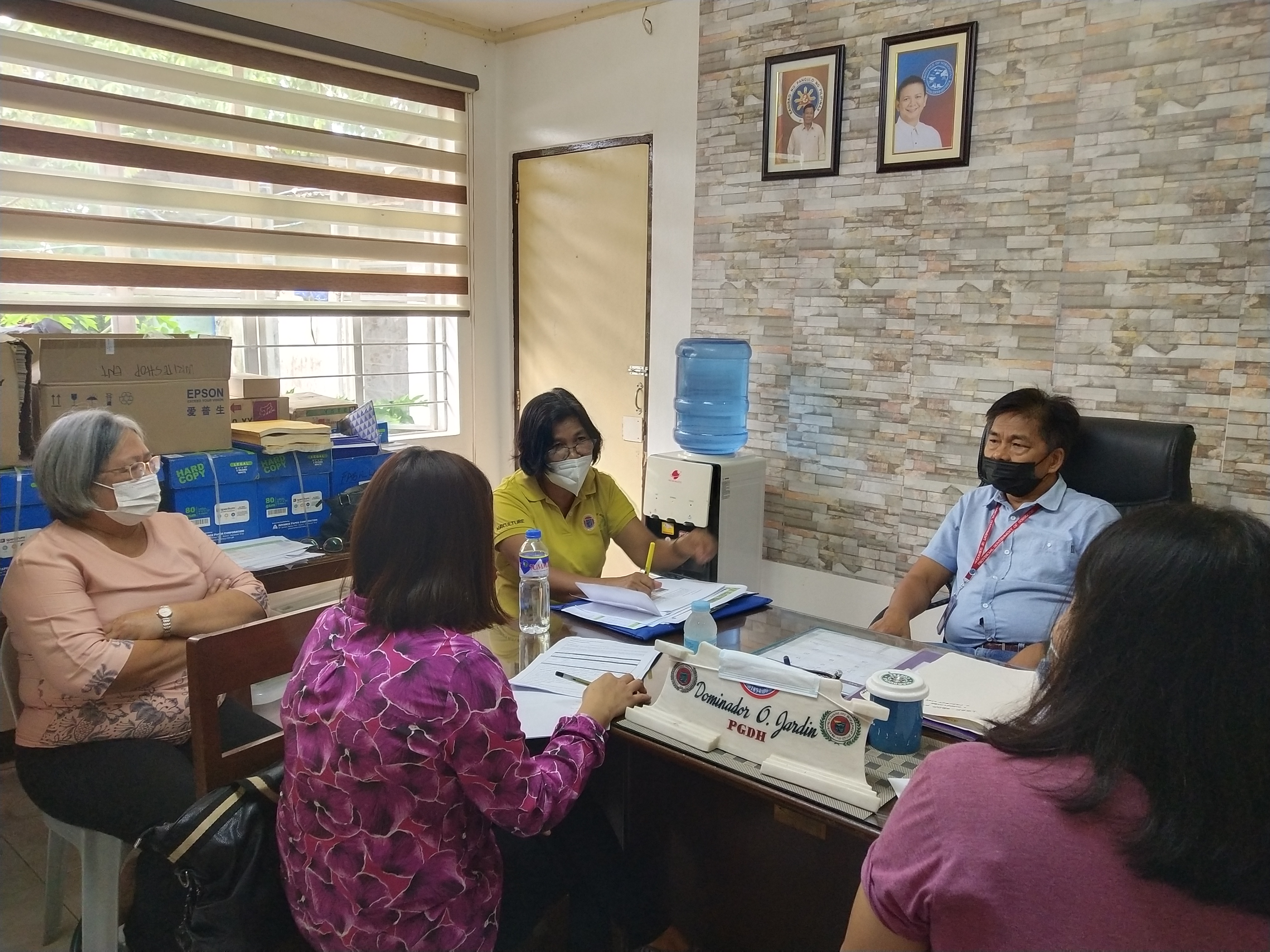
Dominador Jardin, PPMIU Head of Sorsogon expresses his gratitude to the PRDP for its support to the Abaca commodity during the Key Informant Interview for the Enablers. (Photo by: Michelle Angela G. Alfigura, DA-PRDP RPCO V InfoACE Unit

